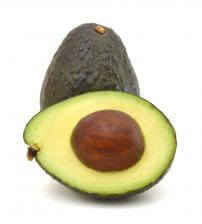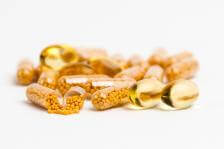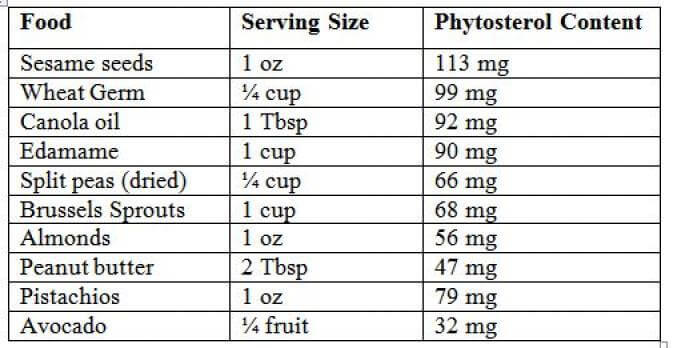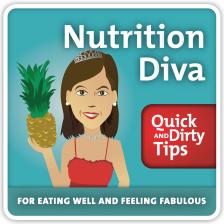What Are Phytosterols?
Phytosterols can help keep your heart and brain young. Find out which foods contain them and how much you need.

At least I hope you have!
Because a diet rich in phytosterols is a great way to reduce your risk of heart disease. And now, researchers suspect that phytosterols also play a role in prevention of Alzheimer’s disease as well.
Read on to learn more.
Sponsor: Squarespace, the all-in-one platform that makes it fast and easy to create your own professional website, e-commerce site, or online portfolio. For a free trial and 10% off, go to squarespace.com/diva and use offer code Diva11.
What Are Sterols?
The word “phyto” means plant, of course. But what does “sterol” mean? Sterols are a family of molecules with a specific shape and structure. Phytosterols are sterols found in plants. The sterols you find in animals are called zoosterols and the best-known of these is cholesterol. And here’s where the link between phytosterols and heart disease comes into play.
How Do Phytosterols Protect Your Heart and Brain?
Stimagsterol appears to inhibit the formation of the beta-amyloid protein that builds up in the brain of people with Alzheimer’s.
Phytosterols and cholesterol are similar enough in structure that they are absorbed through the same mechanisms—and only so many molecules are going to get through the gate. When your diet is high in phytosterols, you absorb less cholesterol. This can lead to lower LDL (or, “bad”) cholesterol levels and and a reduced risk of heart disease.
See also: Eat More of These Foods to Lower Your Cholesterol
Even better, new research suggests that phytosterols may also help reduce your risk of Alzheimer’s. One phytosterol in particular, called stimagsterol, appears to inhibit the formation of the beta-amyloid protein that builds up in the brain of people with Alzheimer’s. The research is still preliminary; we have to see if it works as well in people as it does in animals. But if stigmasterol can help protect our brains as well as our hearts, that will be a welcome bonus!
Where Do You Get Phytosterols?
Pistachios, peanuts, sunflower and sesame seeds, split peas, wheat germ, and canola oil are all particularly good sources, but virtually all nuts, seeds, and legumes contain decent amounts of phytosterols. Some fruits and vegetables, including berries, broccoli, Brusells sprouts, and avocado are also good sources. You can also buy foods, such as butter spreads, peanut butter, mayonnaise, and even orange juice, that have been fortified with extra phytosterols.
Vegetarians tend to have higher intake of phytosterols than meat-eaters, probably because they tend to eat more vegetables, nuts, seeds, and legumes. That could be part of the reason that heart disease rates are lower in vegetarians.
See also: Should You Be a Vegetarian?
Of course, you could just go to the vitamin store and pick up a bottle of phytosterol supplements but I would much prefer that you get these nutrients from foods rather than pills. Why? Because foods that are high in phytosterols tend to be high in other nutrients that also protect your health, such as fiber and antioxidants. Eating nuts and legumes is also linked with a healthy body weight, which further protects you from disease. Finally, when you get your phytosterols from whole foods, it’s pretty hard to overdo it. Not so with supplements.
The Case Against Supplements

See also: Can You Get Too Many Vitamins?
A high intake of phytosterols can lower your cholesterol, for example, but it can also lower your beta-carotene levels. In the context of a diet that includes lots of fruits and vegetables, this is unlikely to cause a problem. But adding a phytosterol supplement to a diet that’s deficient in fruits and vegetables might. Very high levels of phytosterols have even been linked to an increased risk of heart disease. So let’s not assume that if a little is good, a whole lot more will be a whole lot better!
How Much Phytosterol Do You Need?
The cholesterol-lowering benefits of phytosterols appear to peak about about 2,000 mg per day. That’s probably more than you’ll be able to get from diet alone. (Typical intakes max out around 500mg per day.) I still recommend eating phytosterol-rich foods on a regular basis, but if you’re trying to maximize the cholesterol-lowering effect, you might want to add a phytosterol-fortified food to the mix. Check with your doctor to see what target range she recommends. And don’t forget to load up on the fruits and vegetables for extra beta-carotene.
See also: How to Get More Vegetables Into Your Diet
For those who aren’t worried about their cholesterol, enjoying nuts, seeds, legumes, wheat germ, and avocado is a great (and delicious) way to get the protective benefits of phytosterols, along with the many other benefits of these nutritious, whole foods.
 Keep In Touch
Keep In Touch
Post your comments and questions below or on the Nutrition Diva Facebook page. Also be sure to sign up for my free weekly newsletter for more tips, recipes, and answers to your nutrition questions.
Images courtesy of Shutterstock.








